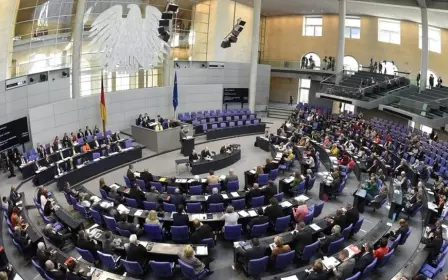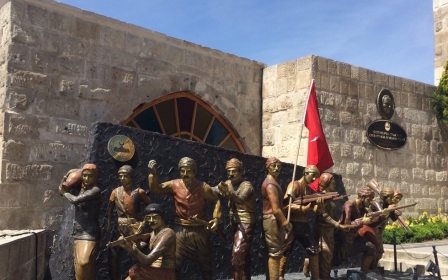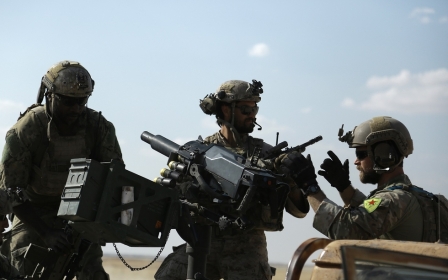Clashes in Istanbul between police and protesters break out on Gezi anniversary

Clashes between police and protesters broke out in Istanbul on Tuesday when hundreds of people took to the streets to mark the third anniversary of the Gezi Park protests, despite a heavy police presence.
More than a dozen activists were detained and a MEE contributor in Istanbul said that small-scale clashes went on into the early evening after opposition groups vowed to defy a police blockade of Taksim Square which neighbours Gezi. However, as evening fell the clashes had all but died out.
Opposition Huriyet newspaper reported that riot police, plainclothes officers as well riot control vehicles and water cannon were all deployed to the square, with local sources telling MEE that tear gas was also used.
Police also detained 16 activists at the offices of the city's architects chamber near the Ottoman-era Yildiz Palace, which had opposed the Gezi Park development and strongly backed the protests, local media reports said.
Reports said they had failed to obey an eviction order and it was not immediately clear if the detentions were linked to the anniversary.
The May-June 2013 Gezi protests began as a grassroots movement to stop plans for the redevelopment of Gezi Park in central Istanbul but snowballed into a wave of nationwide anger against the rule of President Recep Tayyip Erdogan.
The demonstrations eventually fizzled out after a heavy-handed police response, and the security forces have since reacted harshly with water cannons and tear gas to even the smallest anti-government rallies.
Turkey's youth “made a dictator kneel,” he added, while calling the protests a "splash of freedom".
The pro-Kurdish HDP also said in a statement that the protests were “legitimate, democratic and righteous reaction to the oppressive and authoritarian AKP [Justice and Development Party] mentality.”
Eight people were killed in the nationwide unrest which followed the Gezi Park protests.
The low-key anniversary came a day after Erdogan laid into the western media for being allegedly "blind, deaf and dumb" to a police crackdown on demonstrators in strike-hit France, despite broadcasting "uninterrupted" coverage of Turkey's 2013 protests.
In apparent response to his words, pro-Erdogan bloggers on Twitter launched a campaign urging people to beware of France as it stages the upcoming Euro football championships in France, under the hashtag #FranceisnotsecureforEuro2016.
New MEE newsletter: Jerusalem Dispatch
Sign up to get the latest insights and analysis on Israel-Palestine, alongside Turkey Unpacked and other MEE newsletters
Middle East Eye delivers independent and unrivalled coverage and analysis of the Middle East, North Africa and beyond. To learn more about republishing this content and the associated fees, please fill out this form. More about MEE can be found here.




